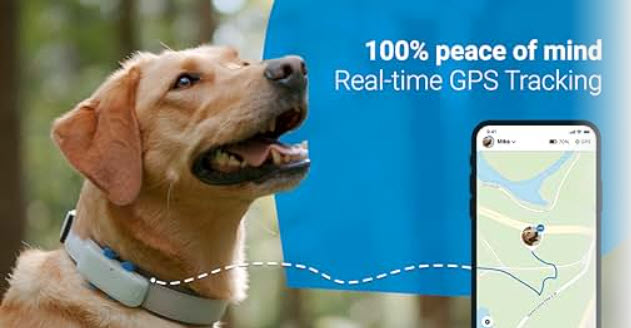
Dog Gone? Not Anymore! The Ins and Outs of GPS Trackers for Dogs
You're out on a walk. The sun is shining, the birds are chirping, and your beloved pooch is bounding happily along...until they're not. You look up from your phone to an empty leash, the sound of jingling tags growing fainter in the distance. And just like that, your peaceful day in the park has turned into a canine version of "Where's Waldo."
Read MoreYou're out on a walk. The sun is shining, the birds are chirping, and your beloved pooch is bounding happily along...until they're not. You look up from your phone to an empty leash, the sound of jingling tags growing fainter in the distance. And just like that, your peaceful day in the park has turned into a canine version of "Where's Waldo."
Enter the 'Tracker'
Enter GPS trackers for dogs, the answer to every pet parent's prayers. They're like having your own personal canine detective on speed dial, ready to lead you straight to your wayward pup's location, be they hiding in the neighbour's garden or chasing squirrels three blocks away.
Now, I know what you're thinking. "A GPS tracker? Isn't that a bit overkill?" But let's face it, we live in a world where we can track our pizzas from oven to doorstep. Shouldn't we have the same peace of mind when it comes to our fur babies?
But here's where the real problem lies: there's a sea of GPS trackers out there, each promising to be the best at finding Fido. Some come with fancy features like health monitors and activity trackers, while others promise real-time updates and customized safe zones. It's enough to make your head spin!
And let's not even get started on the horror stories. We've all heard them: trackers that stop working mid-search, batteries that die faster than a goldfish at a carnival, and the dreaded "out of range" notification. It's enough to make any pet parent question if the tech is worth the trouble.
So What's the Solution?
So, what's a dog owner to do? Well, it's simple. Take a deep breath, grab a cup of coffee (or a glass of wine, we're not judging), and let me guide you through the canine GPS jungle.
First, let's address the elephant in the room: reliability. A GPS tracker is only as good as its signal, so look for one that uses multiple methods of location tracking, like GPS, Wi-Fi, and cellular data. This will ensure that even if one method fails, you've got a backup.
Next, consider your pet's lifestyle. If your dog is more of a couch potato than an adventure hound, a basic model with a good range might be all you need. But if your pup is prone to wandering off or loves exploring the great outdoors, consider a model with real-time tracking and customizable safe zones.
Battery life is another important factor to consider. Some trackers can last up to seven days on a single charge, while others need to be recharged every day. Remember, a tracker is no good if it's dead when you need it the most.
Finally, don't let the price tag scare you. While some high-end models can cost as much as a month's worth of dog food, there are plenty of affordable options that don't skimp on features.
Conclusion
So, there you have it, fellow pet parents. GPS trackers for dogs might seem like a daunting investment, but with a little knowledge and some careful consideration, they can be a lifesaver. Remember, your dog's safety is priceless, and a good GPS tracker is the next best thing to having them on a leash at all times.
So why not take the leap? Invest in a GPS tracker today, and turn your game of "Where's Waldo" into "There's Waldo!"
